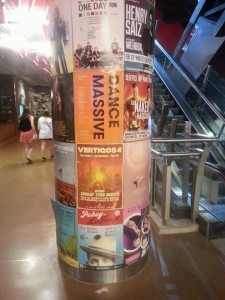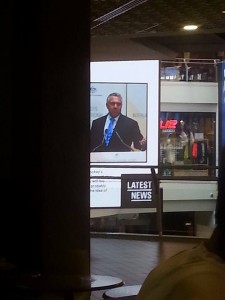Today’s narrative exercise reminded me of the adult swim short films ‘Too Many Cooks’ and ‘Unedited Footage of a Bear’. Basically, they are made up of seemingly unrelated events linked together on the thinnest string, taking wild directions. I advise people to check them out. At one point our (non-fictional) narrative sequence was:
- I woke up in a gutter
- I went insect hunting
- I lobotomised my sister’s new boyfriend
- I got $10,000 in debt
- I sold a mortar and pestle full of toenails to a geriatric Jew
- I told my sister I loved her
- I fell asleep in a gutter
This honestly did seem like the most logical progression of events. We did forget to add in “I walked in on my wife in bed with 2 large bees” though. It probably fits in best before going bee bashing. The class was a bit of fun, and although we took a ridiculous approach, it was a form of narrative practice, I guess.
I realised during Liam’s talk that I’ve probably underestimated the power of editing in the past. I wouldn’t say that editing is wholly responsible for progression of narrative; we have other elements of film for that. But it does have a strong ability to affect our understanding. For something like ‘Too Many Cooks’, the editing is a key focus, as it does not adhere to a logical structure. And to be honest, by the end of it, you just feel downright confused. There are some juxtaposed images that will never create meaning; Christopher Pyne has no chance of sitting on The Iron Throne.
– Gabriel

